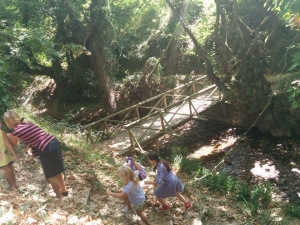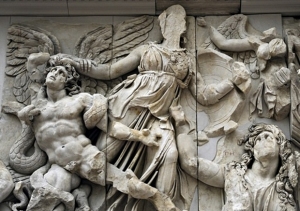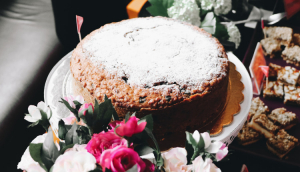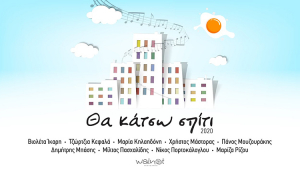Yet again, this is one of those foods that are perfect for cold weather, warm and comforting and most importantly highly nutritious. In my family we ate it together with: feta cheese, black Kalamata olives, smoked mackerel dressed in olive oil and lemon, and of course loads of bread, so it became a full meal.
If you want something less rustic, you can whizz everything in the blender and serve it as a veloute with croutons or even crispy bacon.
INGREDIENTS for 4-6 people
500gr dry white beans, soaked
2-3 carrots, sliced
1 onion, sliced
half bunch of celery, chopped
1 400g can of chopped tomatoes
1 clove garlic (optional)
olive oil
salt, pepper
DIRECTIONS
Soak the beans in warm water with a bit of salt for at least 8 hours. Drain, rinse and fill the pan again with fresh water. Bring to the boil and skim the froth.
Add all the ingredients: carrots, celery, onion, tomatoes, garlic if you are using and 1-2 tbsp of olive oil.
Boil until tender, about two hours. The fresher the beans the quicker they boil. You can also use a pressure cooker if you are really in a hurry. It will only take 10 minutes.
When the beans are ready, season well with salt and pepper. The soup should be thick and creamy. This usally occurs naturally due to the starch contained in the beans. If, however your soup turns out watery, you can easily thicken it by dissolving one tbsp of flour and letting it boil for one minute.
Serve hot with some extra pepper and olive oil on top.
KALI OREKSI!












